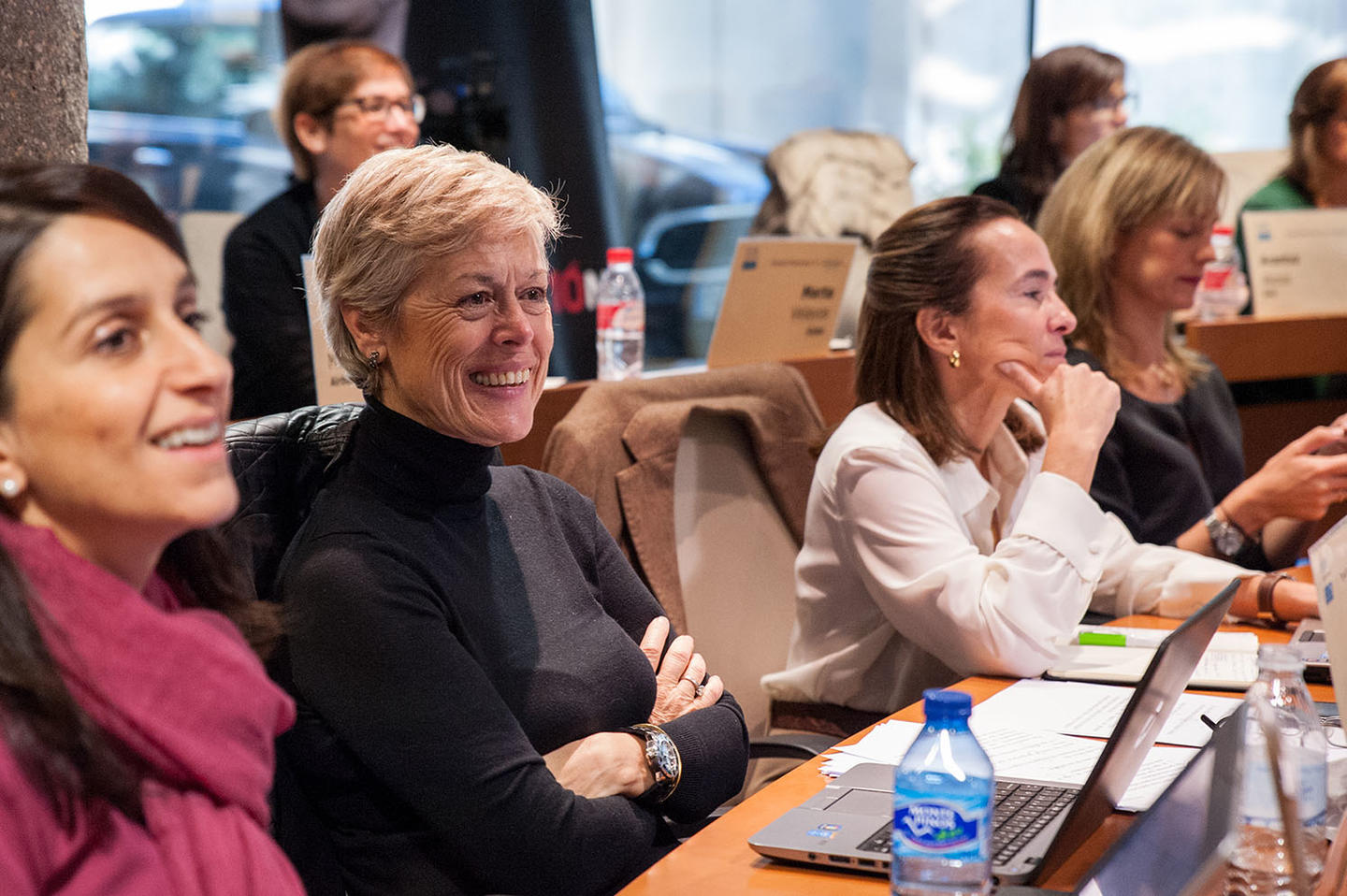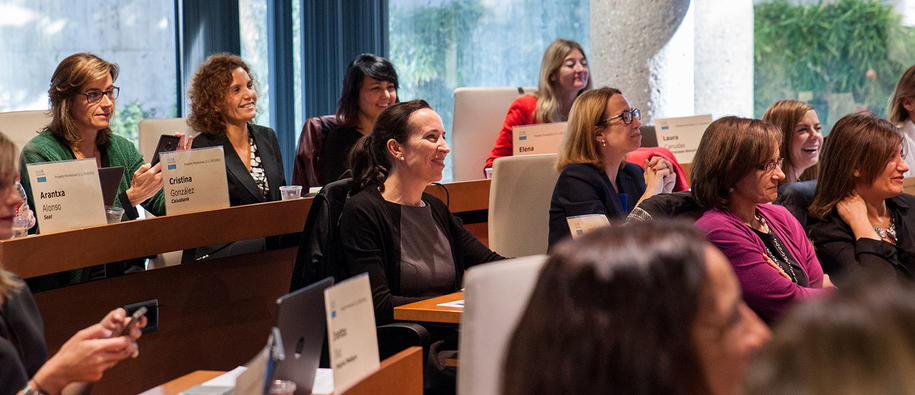Women still earn 20% less than men globally and remain disproportionately affected by poverty, lower education and discrimination in employment – just to name a few. To address this, it is essential to secure equal access to job opportunities at all levels, for both women and men. Here’s how projects supported by the EEA and Norway Grants are turning these challenges into opportunities.
More female managers in Spain
Only 17% of board members in the world’s biggest companies are women. Promociona, a Spanish project focusing on women in management, aims at tackling this issue in a concrete way. The programme identifies female talents in leadership and helps them develop their skills. The training helps the applicants reach their full potential and overcome barriers on their way to the top.
“We are still far from achieving gender equality but given the number of people who are taking part in this project, I think that we can affirm that it is a success. 600 companies took part in the project – this means that 600 companies are now conscious of the added value that women bring to strategical decision-making!” says Susana Sanchiz, director of the project developed by the Spanish Confederation of Business and Organisation (CEOE).
To date, and as a direct result of the project, hundreds of Spanish companies have already committed to increase the number of women in management positions. That means over 800 female employees from some of the biggest companies in Spain have received business training, mentoring and coaching in order to improve their skills. So far, 51% of the participants have been promoted.
And it doesn’t stop there…
Promociona, which kicked off in 2013 under the EEA and Norway Grants, is still running today without our support. They are now launching the 7th edition of the project with 220 new applicants about to join the programme. Inspired by this impressive success, and with the help of the EEA and Norway Grants, the Portuguese Confederation of Business and Organisation (CIP) launched the same project in Portugal, called Promova.
“There were 46 applications to the Promova project, which reinforces our conviction that there are already a great number of companies in Portugal aware of the importance of gender equality in senior management” say Margarida Barreto and Isabel Cardoso from CIP. The training program will start on the 25th of March with 30 participants.
Empowering women in IT at European level
Another inequality in the labour market is the underrepresentation of women in the ever-growing IT sector. In the next years, positions will increasingly require digital skills – we can’t afford to leave half the workforce behind. According to Helena Lovegrove, director at DIGITALEUROPE, only 1.4% of total female workers in OECD countries have jobs that develop, maintain and operate ICT systems, compared to 5.5% of the male workers.
Left unclosed, this digital gap will lead to missing out on female talent, innovation and entrepreneurship – and further widen the gender gap.
“The technological revolution that we are witnessing contributes so much to our economy and to society in general that we cannot afford to leave half of the population out of it” says Yaiza Rubio, intelligence analyst for Digital Telefonica.
To tackle this issue, the Women4IT project supported by the EEA and Norway Grants’ Fund for Youth Employment focuses on increasing young women’s employability in digital technologies, as well as strengthening their role in the economy. The project will focus on assessing digital needs, and offer training and guidance to 1 000 women across seven countries in Europe (Greece, Ireland, Latvia, Lithuania, Malta, Romania and Spain). The project will also reach up to 10 000 youth through digital career awareness activities.
“Opportunities for young women can be significantly enhanced with the relevant digital skill set. This assists in redressing the gender balance in tech roles where women are traditionally under-represented. This, in turn, leads to greater economic stability on an individual, local and regional level.” explains Sean Coyne, Digital Transformation Advisor of Code Institute Ireland and a partner in this programme.
More information
Find out more about the International Women’s Day #IWD2020 #EachforEqual.
Find out more about the Fund for Youth Employment and the project Women4IT.
Find out more about the projects Promociona and Promova.

